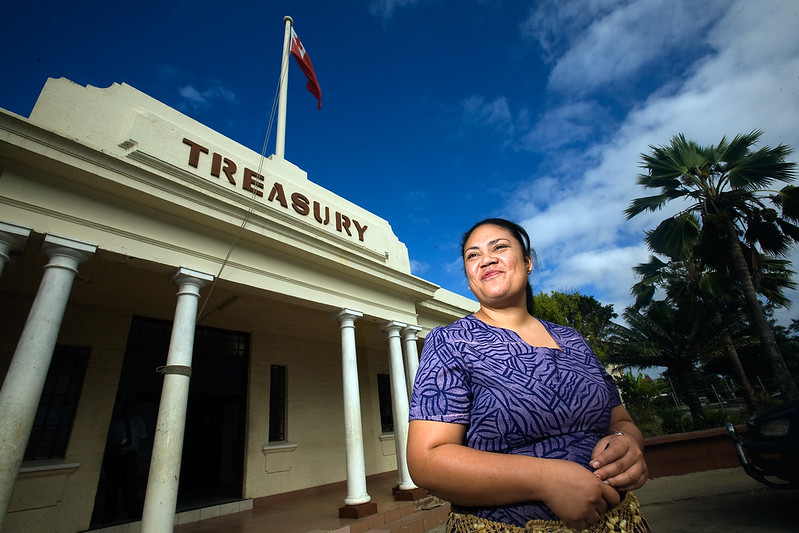Tonga Empowers Gender Equality in Leadership
 Tongan women are severely underrepresented in political leadership positions, both at local and national levels. This is a reminder of the gender disparities that persist in society and a reflection of deep-seated social norms that perpetuate the idea that women are less suited for leadership than men. However, through initiatives like the Balance of Power and Tonga Youth Leaders, Tonga is empowering gender equality in leadership, breaking down barriers, challenging traditional views and promoting women’s participation in political decision-making.
Tongan women are severely underrepresented in political leadership positions, both at local and national levels. This is a reminder of the gender disparities that persist in society and a reflection of deep-seated social norms that perpetuate the idea that women are less suited for leadership than men. However, through initiatives like the Balance of Power and Tonga Youth Leaders, Tonga is empowering gender equality in leadership, breaking down barriers, challenging traditional views and promoting women’s participation in political decision-making.
Barriers to Tonga’s Women in Political Leadership
While women’s leadership within the public sector and family and community life has had successive progress, political leadership progress is still limited. No more than two women have been elected to the national Parliament in a general election, which was in 2017. In the most recent election, in 2021, no women were elected. Women’s underrepresentation in political leadership is a result of barriers that are often rooted in cultural, social and institutional factors that perpetuate gender inequality and limit women’s opportunities to participate actively in political decision-making processes.
Some key barriers to Tonga’s women in political leadership include:
- Cultural and social norms are deeply ingrained. These norms perpetuate the view that men are inherently better in leadership positions than women and that women don’t have the “right” skills and experience for political leadership roles that men do. Such norms can deter women from pursuing careers in leadership positions, as they may face societal pressures to conform to traditional gender roles.
- Gender stereotypes can undermine women’s credibility as political leaders. Women who pursue careers in politics face scrutiny, discrimination and bias based on gender, with their qualifications, capabilities and decisions questioned or dismissed due to stereotypes about women’s competence in leadership roles.
- A lack of media representation of women’s voices. Media plays a crucial role in shaping public perceptions, influencing opinions and circulating information about political candidates and issues. Underrepresentation in the media can reinforce gender stereotypes and traditional gender roles.
- Institutional and legal frameworks can limit women’s political participation. Women do not have the same financial resources as men. The practice of voters expecting reciprocal gifts from candidates creates challenges for women, as they may have limited resources or face societal pressures that prevent them from meeting these demands. While bribery is illegal under Tongan electoral law, voters do not classify it as bribery and this makes it harder for women to compete effectively in elections.
The importance of gender equality in leadership is crucial as men and women often have differing needs and viewpoints, highlighting the significance of ensuring women are represented. With women constituting half of the population, it is pivotal that their interests are effectively addressed. A balanced participation of both men and women in decision-making is essential.
Balance of Power
Balance of Power is an Australian Government funded, locally-led approach to supporting women in political leadership. It is an initiative aimed at addressing gender disparities in political representation by shifting social norms and attitudes that impede women from being recognized as credible leaders. It focuses on promoting gender equality in leadership by empowering women to participate actively in political leadership roles.
The Balance of Power initiative employs adaptive management and politically informed approaches to drive change. Through training, mentorship and advocacy, the Balance of Power seeks to challenge social norms, traditional views and barriers that hinder women’s engagement in politics. The initiative executes this with media collaboration to increase women’s leadership visibility, strengthening the Women in Leadership Coalition, research and advocacy to address negative perceptions and regional engagement to change social norms.
Tonga Youth Leaders
Tonga Youth Leaders is a “youth-led organization that empowers and develops Tongan youth to become catalysts for positive change in their own communities.” The organization was set up in 2017 by Elizabeth Kite to give a voice to the Tongan youth and encourage their participation in community development through small projects and fostering leadership skills.
The Tonga Youth Leaders organized an initiative called Girls Takeover Parliament, which offers 26 young women and girls the chance to participate in a parliamentary setting, enabling them to express and share views on national issues. The Girls Takeover Parliament initiative helps young women and girls realise their potential, develop leadership skills and allow them the opportunity to pursue a career in politics.
About 90% of participants expressed their interest in pursuing a career in politics after they attended the Girls Takeover Parliament initiative. The initiative has had a significant impact on empowering young women and girls and raising awareness about youth engagement and gender equality in leadership.
Tonga’s commitment to empowering gender equality in leadership is evident through innovative initiatives like the Balance of Power and Tonga Youth Leaders. These initiatives not only challenge social norms and traditional views and break down barriers but also foster inclusivity and encourage youth engagement, as well as women’s active participation in decision-making roles. Through targeted programs, media collaborations and community engagement, Tonga is paving the way for a more equitable and representative political landscape.
– Isabella Green
Isabella is based in Aylesbury, UK and focuses on Good News for The Borgen Project.
Photo: Flickr
